Rail strikes: Wales tourism bosses worry for industry
- Published
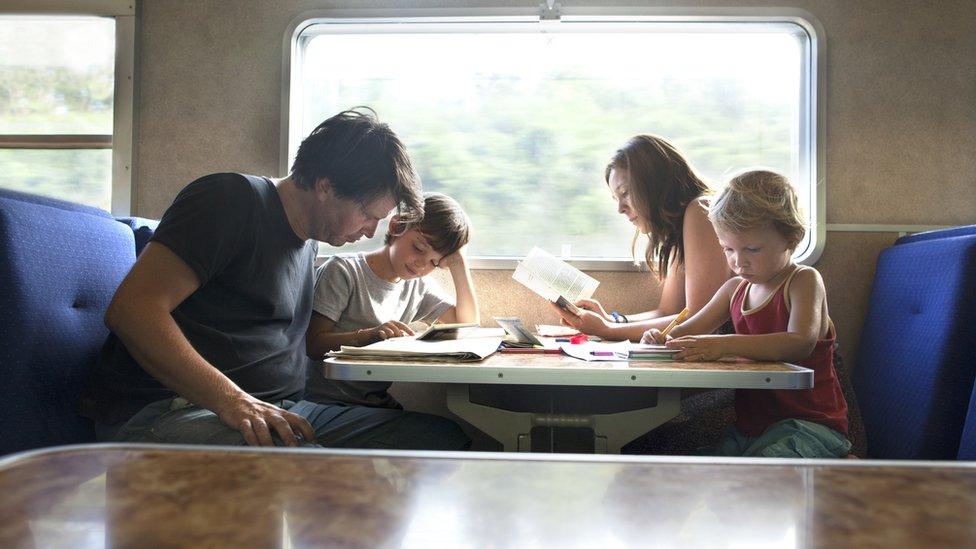
Rail strikes could put families off traveling in Wales, says Jim Jones from North Wales Tourism
Tourism officials in Wales say they fear that the latest rail strikes have come at "the worst possible time".
The new industrial action, beginning Saturday and continuing next Thursday and Saturday, is hitting the holiday industry on one of the busiest weeks of the year, said North Wales Tourism.
Managing director Jim Jones is worried it could put people off visiting Wales.
Action by the RMT, Aslef and the TSSA unions will affect services as Wales continues to bask in a heatwave.
Transport for Wales (TfW) has advised avoiding rail travel if possible.
The days immediately after the strike will also be affected, according to Great Western Railway (GWR).
It follows strikes last month, where less than 10% of the network in Wales was operating.
The company said the south Wales main line, which covers Carmarthen and Swansea to Cardiff Central, is affected in various ways on different days.
Train operator Avanti said services to north Wales will also be hit.
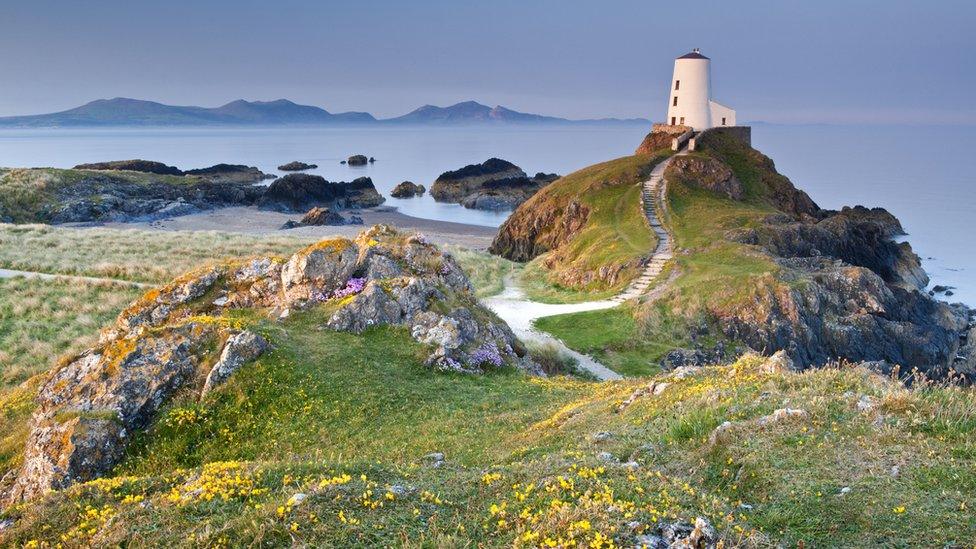
Firms warn many areas will be affected by the strikes, including tourist destinations on the north Wales coast
Mr Jones said at a time where there are already post-Covid tourism worries in Wales, "this couldn't have come at a worst time as there is already a slowdown in advance accommodation bookings going into the autumn".
He said: "We were recently promised by Avanti that there will be a return to pre-Covid level of service, which is what we need and was very much welcomed.
'Very little confidence'
"However the current industrial action has decimated those plans. It's not just the striking days, but the days after which cause disruption and a level of uncertainty."
He said it gave "very little confidence" to visitors booking trips by rail.
"There is also so much more at play that is impacting on people's plans. I would imagine holidays are not top of the priority list, especially with the rising living costs, especially food and fuel," he said.
"We are trying hard to encourage people to use transport systems like the rail service to help our region become more of a sustainable destination. It will definitely put people off travelling by train and push them back to the car."
Suzy Davies, chair of the Wales Tourism Alliance, said while a lot of people still travelled by car, the strike could put travellers off.
Tourism is one of Wales' main industries and "one of its highest earners", so "you're if you're on holiday starting or ending with delayed experiences it's going to put a damper on it all".
Only about 4% of tourism travel in Wales is by rail. But she said there is a changing trend with travellers, particularly younger people, to travel more sustainably and move away from cars.
Also, more people will have to reply on railways as the cost of living and fuel pushes people to rethink how they travel. She said tourism cancellations "have really started to take off quite dramatically," with a quarter of businesses she spoke to reporting them.
'Chaos for guests'

Lynette Esposito, who owns a hotel in Llandudno, worries rail strikes are another strain on tourism
Lynette Esposito runs The Elm Tree Hotel in Llandudno, Conwy and said on top of rising costs, the perception of ineffective public transport was putting people off, both in the UK and internationally.
She worries about more cancellations and shorter stays as people try to keep up with rising costs.
She hopes this season can be extended into October, but said rail strikes have "caused chaos", with cancellations and postponements.
"It is always down to a number of factors and it has put people off, but people are also desperate to have a holiday," she said.
What strikes are coming up?
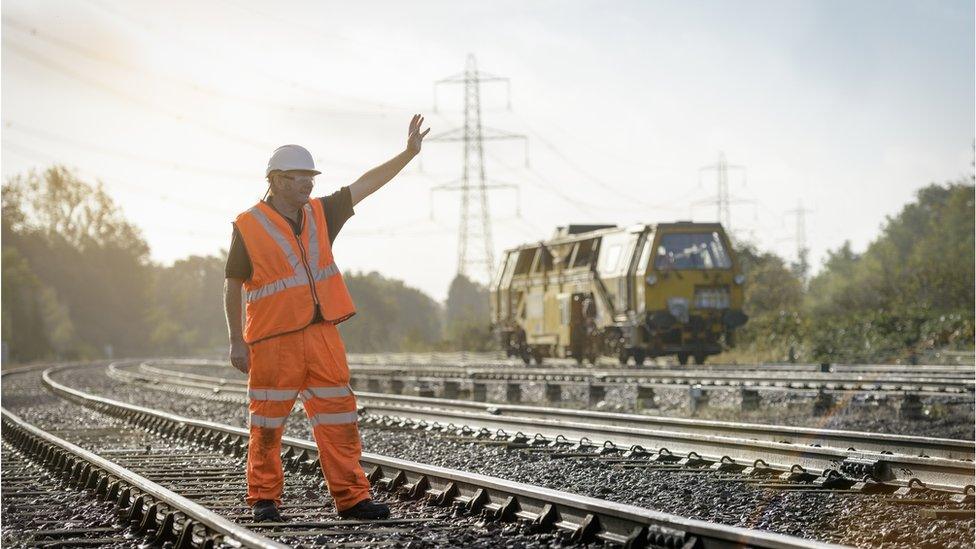
The strikes follow others last month around pay and working terms and conditions
GWR said strikes will severely affect services. Trains will be "extremely busy" and people should travel only if absolutely necessary.
An "extremely limited service" will operate between 07:00 BST and 18:30, with earlier late trains expected and disruption affecting following days.
What routes will be affected?
Transport for Wales is run by the Welsh government and is not striking.
TfW's south Wales services between Carmarthen and Newport are expected to be very busy because there are no GWR services running in Wales.
The same goes for services between Cardiff and Lydney, Shrewsbury and Wolverhampton and along the north Wales coast, as no CrossCountry, West Midlands Trains and Avanti West Coast services will operate on Saturday.
TfW is advising customers not to travel unless their journey is essential between:
Carmarthen and Newport, which includes Llanelli, Swansea and Bridgend
Cardiff and Lydney
Shrewsbury and Wolverhampton
North Wales coast
Why is the strike happening?
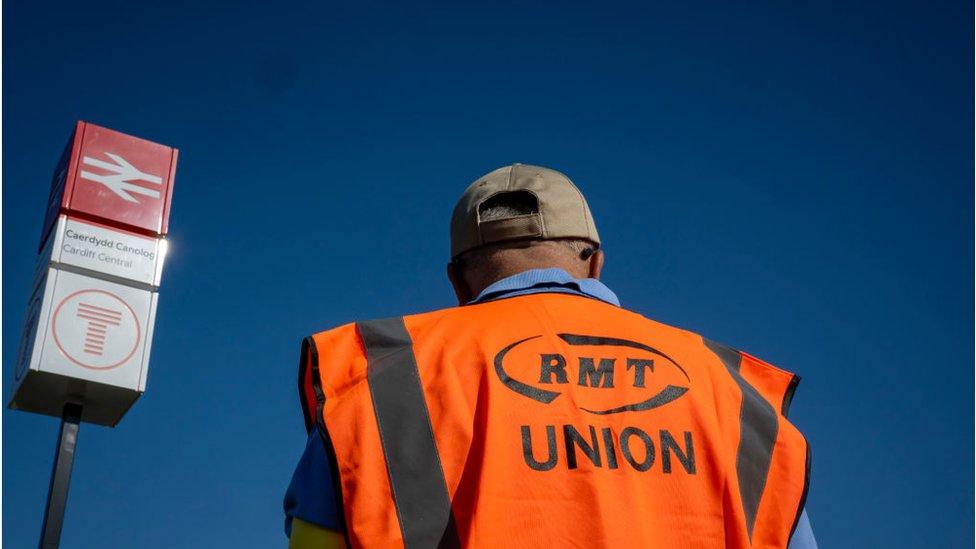
RMT unions are striking again next week next week over pay freezes and terms and conditions.
Essentially, the strikes revolve around pay amid the rise of cost of living.
The RMT union has said members working for train companies have been subjected to "pay freezes, threats to jobs and attacks on their terms and conditions".
Network Rail plans to cut 2,500 maintenance jobs as it tries to make £2bn of savings over the next two years.
The RMT said the jobs were safety critical and cutting them will make accidents more likely, so 40,000 rail workers walked out over three days in July.
Network Rail said it would not consider any changes that would make the railways less safe and that modernisation was needed.
Aslef, a union for train drivers, are to strike on Saturday after the firms "failed to make a pay offer to help members keep pace with the increase in the cost of living".
How will it affect events?

Travel to events such as Cardiff City versus Birmingham City at the Cardiff City Stadium on Saturday could be affected, says TfW
TfW warn that many events on Saturday 13 August could be hit and customers are advised to check for information.
These include:
The FIM Speedway GP at the Principality Stadium, Cardiff
Welsh Fire v Birmingham Phoenix at Sophia Gardens, Cardiff
Cardiff City v Birmingham City at the Cardiff City Stadium
Pete Tong and the Symphony Orchestra at Stadiwm Zip World in Colwyn Bay
The company said extra staff will be deployed at stations to help provide customer services.
A Department for Transport spokesperson said: "It's incredibly disappointing that union bosses have opted for destructive strike action that will cause as much misery as possible, instead of engaging in constructive talks".

BBC WALES INVESTIGATES: The subjects affecting the lives of people in Wales
BROTHERS IN DANCE: The remarkable duo at the forefront of UK dance

- Published20 July 2022
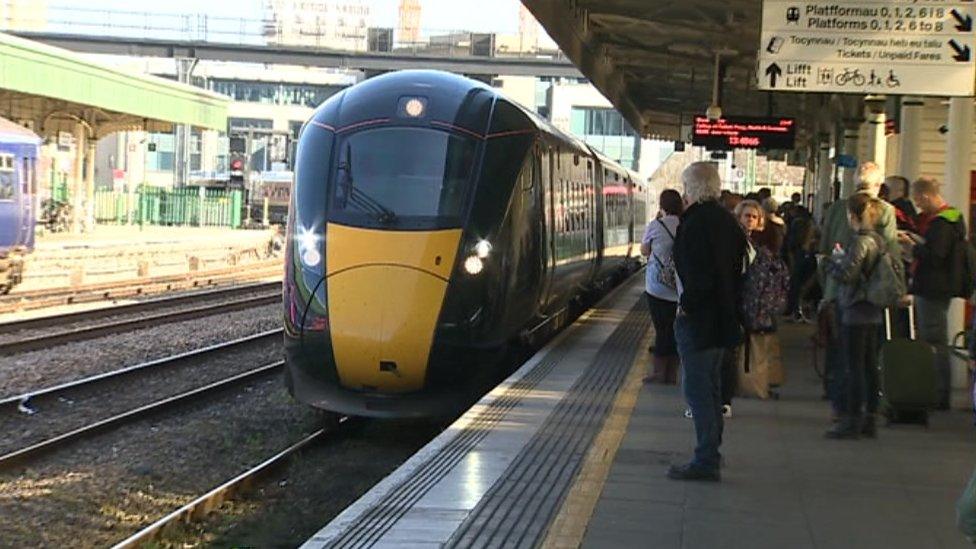
- Published24 August 2019
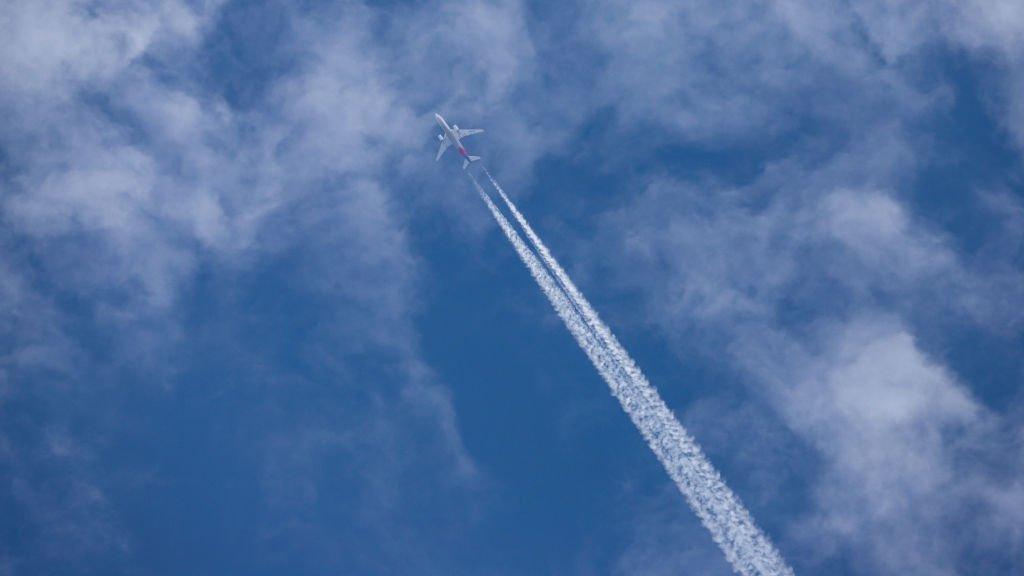
- Published23 July 2022
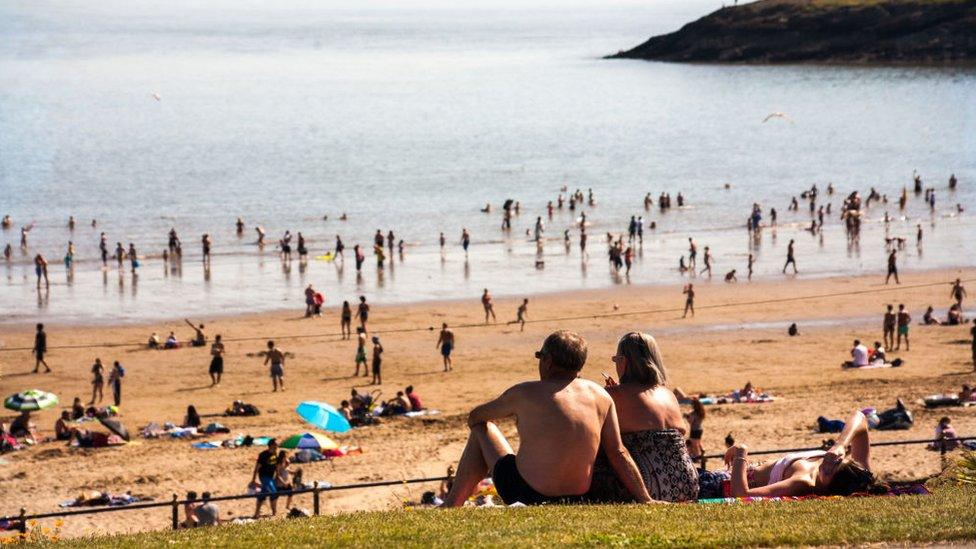
- Published25 June 2022
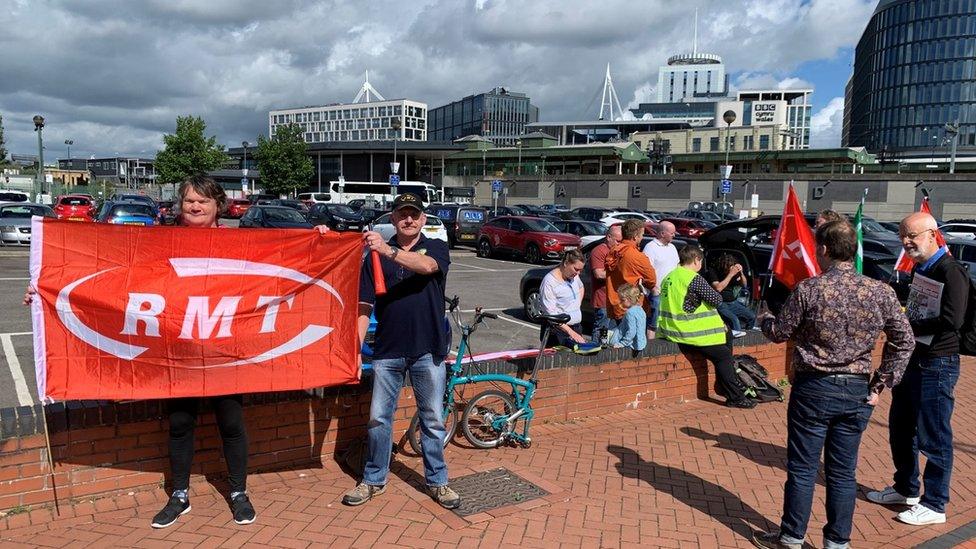
- Published25 June 2022
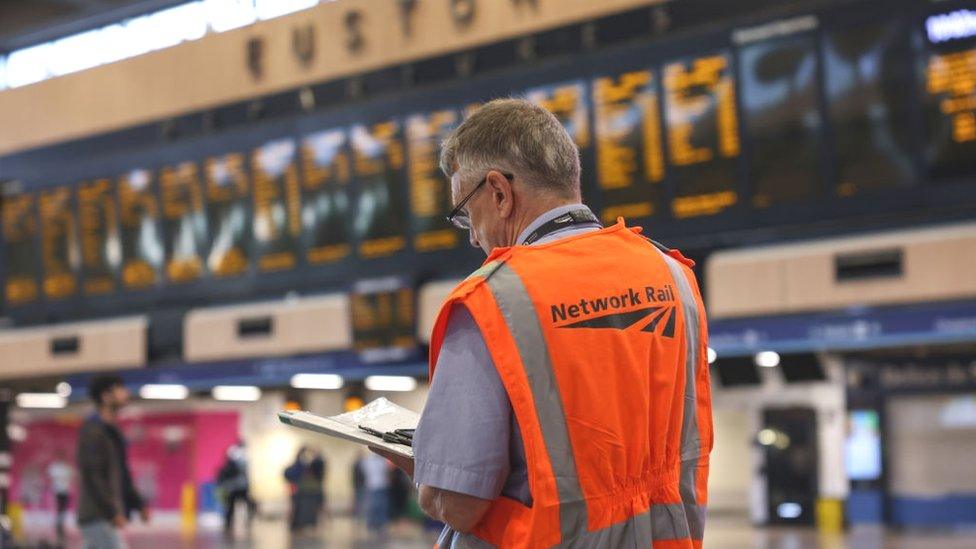
- Published23 June 2022
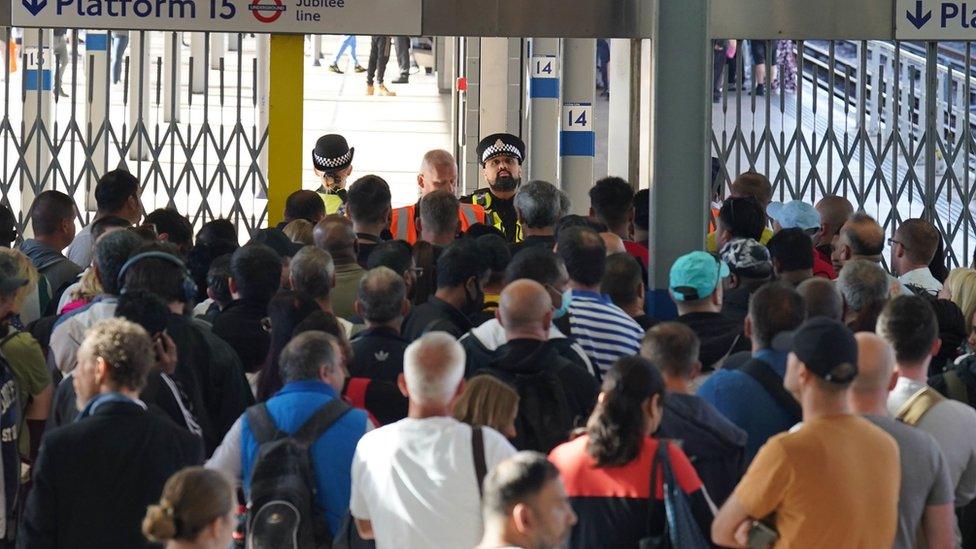
- Published20 June 2022
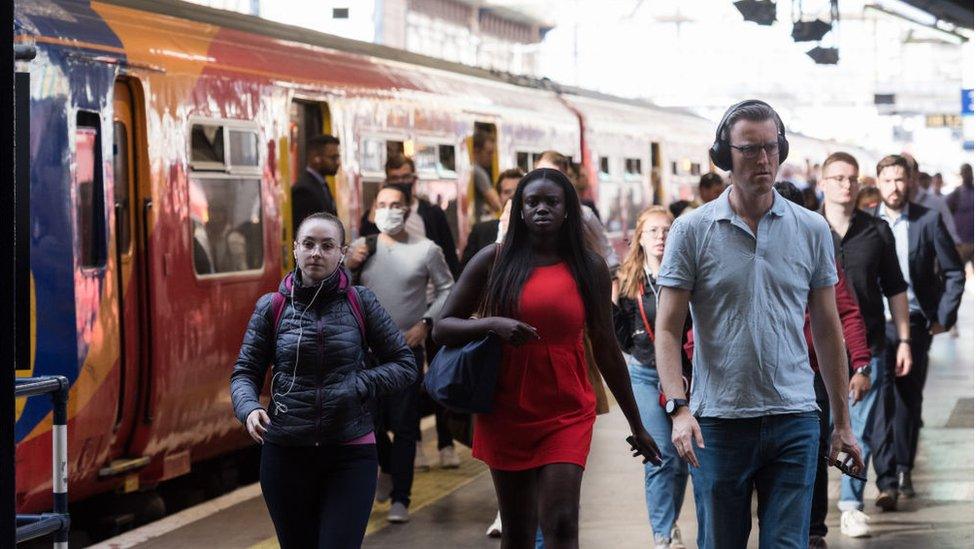
- Published10 August 2022
